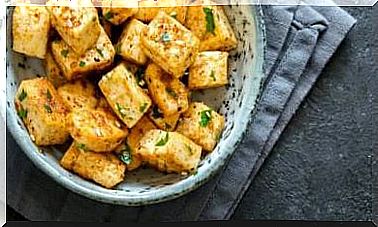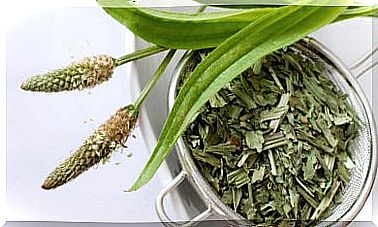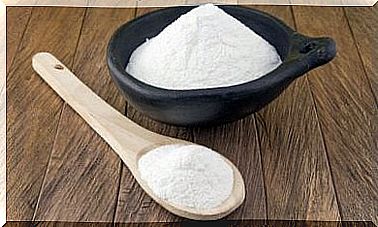Medicinal Plant Thyme
There is not only one type of thyme, but today we would like to tell you about the benefits of real thyme as a medicinal plant.
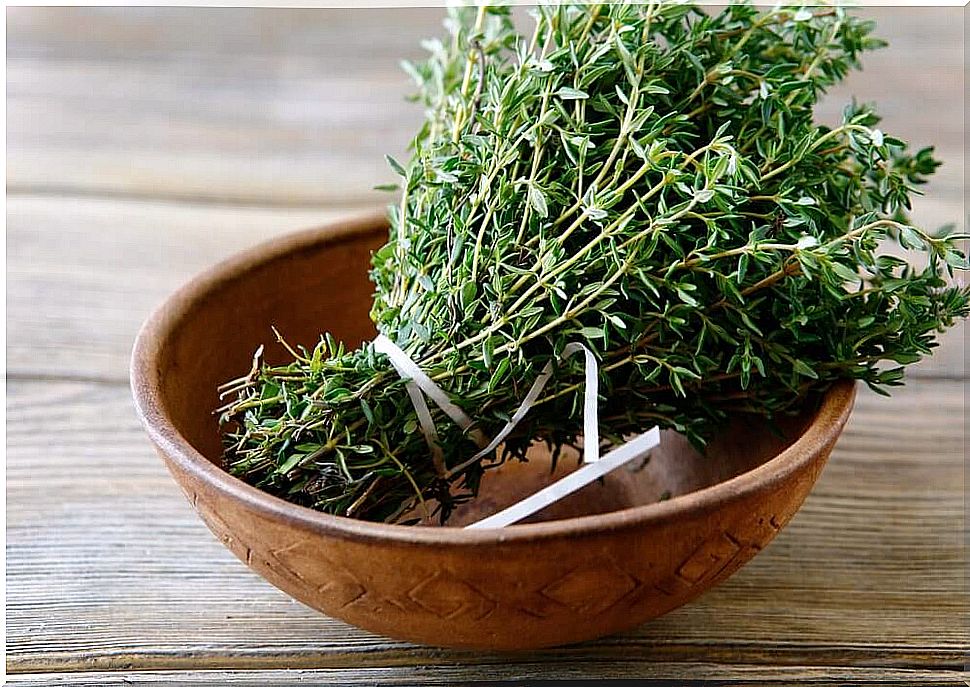
In Thyme is an entire genus, so does not have any variety, the same healing properties. Therefore, make sure that you use thymus vulgaris as a medicinal plant. Find out what this plant can do for you!
Real thyme: medicine from nature
Thyme has been used as a medicinal plant in Central Europe at least since the Middle Ages. To this day it is used in naturopathy, aromatherapy, homeopathy and also classical medicine. If you also want to use the active ingredients of the spice for yourself, make sure that the herb or oil comes from either thymus vulgaris or thymus zygis. Other varieties have no medicinal properties.
The active substances are mainly found in the essential oil in the leaves, so you should prefer fresh herbs or use pure essential oil, which you can get in pharmacies or organic shops, for example.
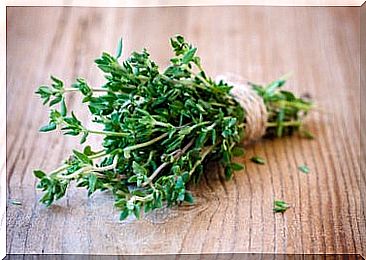
Effect of the essential oil
The essential oil of thyme contains several effective substances that can be used in naturopathy:
- Thymol
- Carvacrol
- Borneol
- Linalool
- p-cymene
The combination of these active ingredients leads to a healing effect, but individual components such as thymol also have healing properties. The essential oil works
- expectorant
- cough dissolving
- expanding to the bronchi
- anti-inflammatory
The component thymol is also a little miracle weapon, because thymol has a disinfecting, fungicidal and bactericidal effect, i.e. it kills fungi and bacteria. The isolated active ingredient is also contained in some medicinal products in classical medicine that act, for example, against skin fungi. Beekeepers who work without synthetic toxins also use thymol against mite infestation in the beehive.

application areas
The essential oil of thyme works very well against ailments and diseases of the respiratory tract. Due to its expectorant effect, thyme is ideal for coughing, as it also dilates the bronchi and improves the coughing up of mucus.
The anti-inflammatory properties are ideal for soothing inflamed bronchi or for relieving sore throats. The essential oil is also very suitable as a mouth rinse solution for inflammation in the mouth, for example on the gums.
Please never use essential oil undiluted as it can irritate the skin and make the problem worse. Always dilute thyme essential oil with a little lukewarm water for gargling or with pure alcohol to treat the skin.
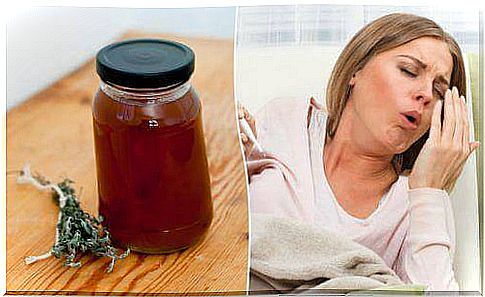
Thyme honey for coughs
Thyme is traditionally used in combination with honey as an effective remedy for coughs. You can buy ready-to-use thyme honey in stores, but it is quite easy to combine the two products individually. Simply make a very strong brew of thyme leaves and dissolve honey in it. Drink it in small sips like tea.
Alternatively, you can use thyme oil and mix it with honey. Please only use pure essential thyme oil and always prepare the home remedy fresh by mixing about a tablespoon of honey with a good 10 drops of thyme oil and then slowly licking it.
Flavored water with thyme
Thyme harmonizes perfectly with lemon and flavored drinking water without any calories with a wonderfully spicy, Mediterranean taste. All you need is a carafe, into which you fill a few slices of lemon (from controlled organic cultivation, please!) And a few fresh sprigs of thyme.
Pour drinking water on top and let the water cool and steep in the refrigerator so that the aroma diffuses through the water. An ideal thirst quencher for summer temperatures, with grilled dishes, chicken or fish.
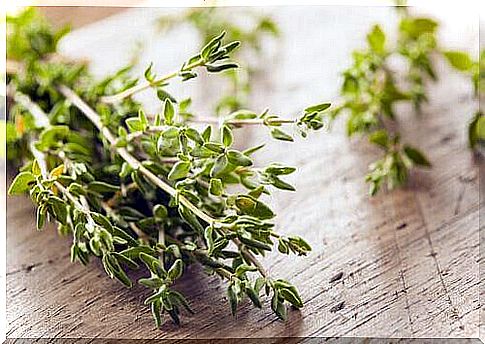
Thyme in a sweet combination
The medicinal and culinary herb can not only be combined heartily with vegetables, meat and fish, it also goes well with desserts! Thyme is often used in sweet spreads and jams. Try the following types of fruit:
- peach
- blackberry
- pear
- Apple
- Orange / lemon
Sprinkled over a pear or apple compote, thyme leaves not only look decorative, they also taste great! The combination with thyme is downright classic. Try it out, you will be surprised how a more “hearty” spice goes well with desserts!




